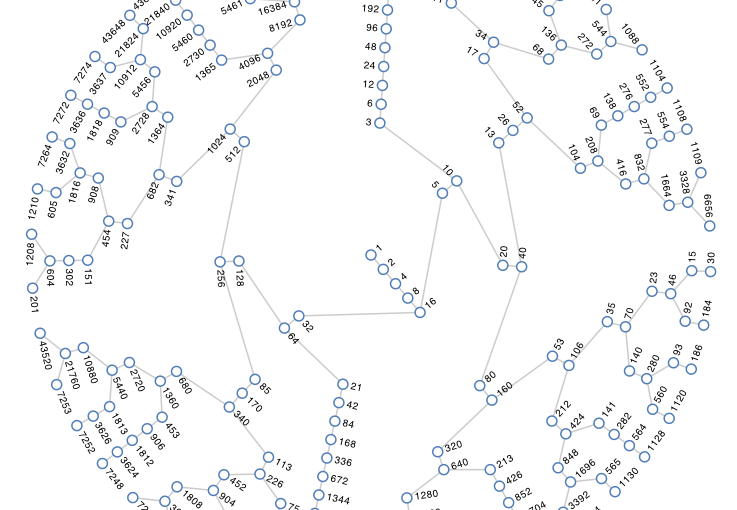Behold: The Collatz Conjecture Library!

You might have read my post on the Collatz Conjecture. If you didn’t, you can read it with this link. If you read it, you know I talked about a cool problem called the Collatz Conjecture, and also showed you a piece of code I made. Well, I updated the code, into a library of functions meant for calculating numbers on the Collatz Conjecture. I have the Gist right here:
There is a class called Collatz, and inside it 6 methods. The first two are simply for returning variables, nothing cool. The most important method inside it is find_steps, which calculates the amount of steps it takes to get from a certain number to 1. The find_max_steps method sees which number from a range of 1 to the method argument has the most steps. The final method, find_smallest steps, returns the smallest number whose steps are more than itself times the argument.
I’m thinking of posting this as a GitHub project, once I improve it. If you have any suggestions for more methods, or just to increase quality, please write in the comments. Thanks!
Hi Arjan,
I’ve read your both posts on the Collatz Conjecture. You’ve done a great job!
Regards,
Sergey.